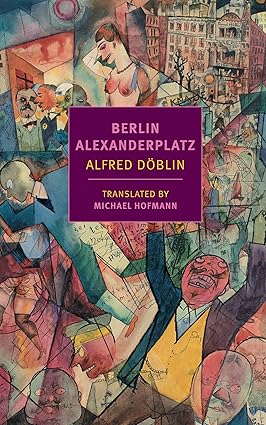 Inglés
InglésBerlin Alexanderplatz
Alfred DöblinArrendar
Recíbelo en 24-48 horas arrendado
Cotizar Título
Confirmar Disponibilidad para Compra
Berlin Alexanderplatz by Alfred Döblin is a modernist novel set in Weimar-era Berlin, focusing on the life of Franz Biberkopf, a former criminal trying to rebuild his life after being released from prison. The narrative follows Biberkopf's tumultuous journey as he struggles to adapt to life on the outside, surrounded by the harsh realities of urban poverty, violence, and moral decay. The novel portrays his desperate attempts at redemption, yet he continuously finds himself drawn back into the criminal world and personal failure. Döblin blends elements of psychological depth, existential conflict, and social commentary to reveal the bleakness of post-war society, using a fragmented narrative style and stream-of-consciousness techniques to capture Biberkopf’s inner turmoil and the chaotic environment around him.
As the story unfolds, Biberkopf is faced with a series of increasingly tragic events, including betrayals, losses, and violence that challenge his ability to maintain any sense of hope or morality. The novel is not only a portrait of one man's struggle but also a sharp critique of the alienation and disillusionment that characterized urban life in the early 20th century. Döblin’s use of multiple narrative perspectives, including inner monologues and fragmented thoughts, conveys the complexity of the human experience in a rapidly changing world. Berlin Alexanderplatz ultimately explores themes of identity, fate, and the search for meaning in a city that offers little solace, presenting a stark reflection of the fractured nature of modern existence.